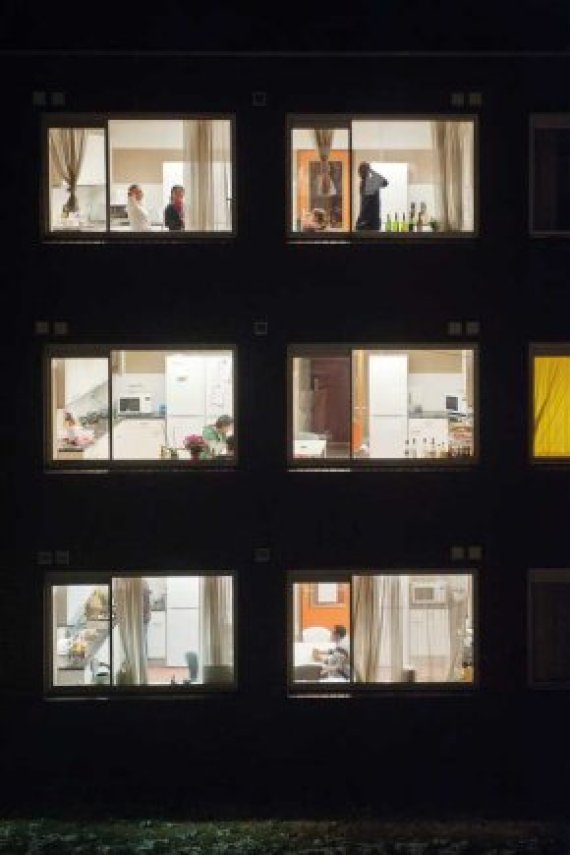Soldiers out, students in. A nice solution to the shortage of rooms. Or is it? In November, the students made in known, including in Resource, that although they were satisfied with the accommodation, they were less happy with the distance between their barracks and the university. A delegation from the university paid a visit, as promised. Emma from England, who was a spokesperson at the time, was quite impressed. Not that the shuttle bus service the students wanted has materialized. ‘That didn’t surprise us. But it was disappointing that there was no follow-up at all after the visit.’ For this reason, three quarters of the students have left, according to Emma. She can understand it. ‘It is a pity to live so far from Wageningen. We miss a lot.’
Parties
But apart from the distance, the students are having a good time in Ede. Emma: ‘The facilities are fantastic.’ For 333 euros a month, the tenants get 13 m2, furniture, brand-new showers and kitchen utensils. The units are even cleaned for them. Each unit has 17 rooms, but on most corridors only 10 of them are occupied. The doors to all the units are left open and everyone joins in the parties. Juen from China says: ‘In comparison with Wageningen student houses, it is obvious that social life there revolves very much around your own unit. We also have a bigger kitchen, which is important for having a lot of contact with each other.’ Dmitri from Bulgaria agrees. ‘We eat together with other units too, and there are parties every week.’ Is this enough reason to stay? ‘In the end’, says Gerard from Benin, ‘you have to weigh up the advantages against the disadvantages. In Benin we also formed a community made up of many students who lived far from the university, just like here. If you build up a strong relationship with your housemates, you don’t want to leave any more.’
Dancing in the snow
Things haven’t got that far yet in the unit where Paula from Columbia lives. Most of the students here have just arrived in the Netherlands and are still getting over the culture shock at the quiet, wooded barracks compound. They have come to do a two-year Master’s degree, and are just getting to know each other around the kitchen table. But Emma’s unit is full of exchange students who go home again after six months. Over a period of five months the unit has been home to 35 students of 23 nationalities. Now there are eight nationalities, including Canadians, a Dane, an Ethiopian and a Bengali. With so many cultures together, don’t you get friction? Emma: ‘No, actually, we get on well together.’ Take the Brazilians. ‘They are great’, says Emma. ‘They always switch to English if you are in the room, even if you are not in conversation with each other. I have a lot of respect for that.’ The Brazilians themselves are finding the cold a bit hard to cope with. Natalia: ‘Yesterday I cycled as far as the barracks gate, but I turned around. I felt that I wouldn’t make it to Wageningen.’ They were just about getting used to 7 degrees (above zero). ‘That was cold enough for us.’ Then it started to snow and they forgot the cold for a while. ‘The first snow we had ever seen’, says Natalia, still savouring the memory. ‘At midnight we were out there dancing and shouting with excitement, in our pyjamas.’

